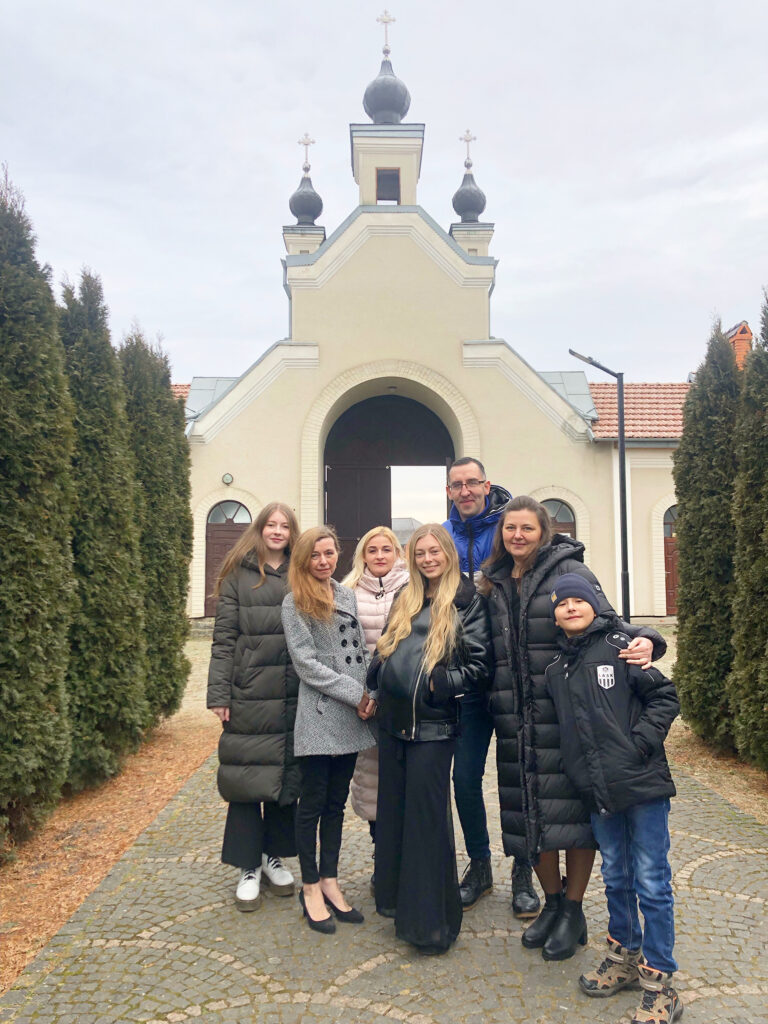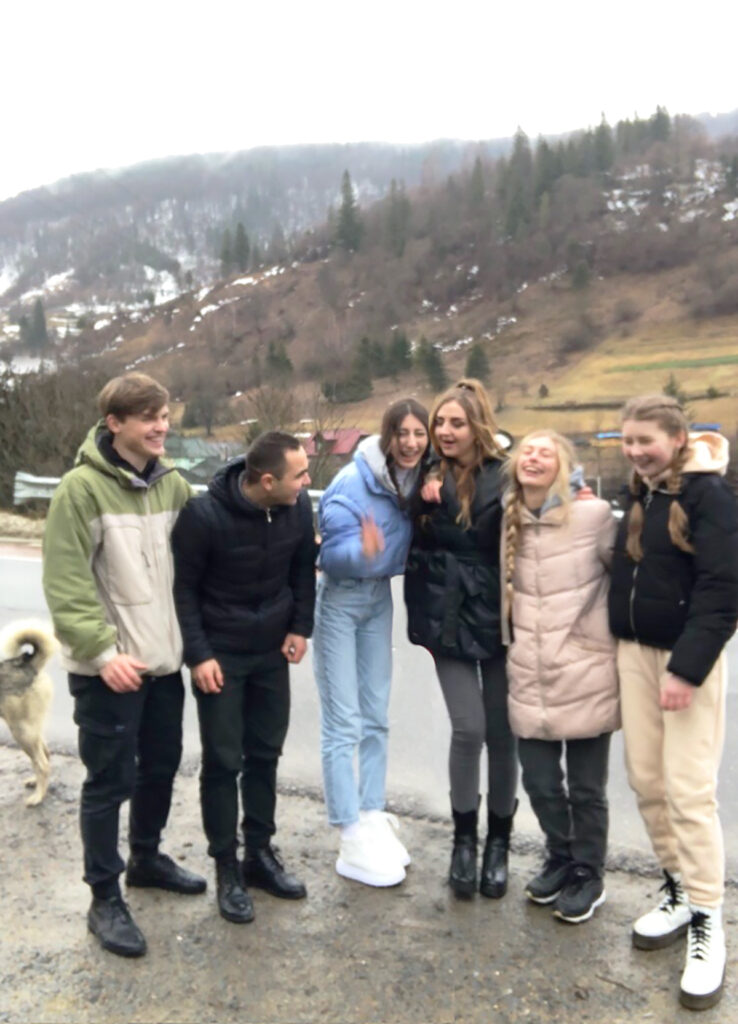Grit is defined by Merriam Webster as a firmness of mind or spirit, unyielding courage in the face of hardship or danger. It’s a fitting description for my family in Ukraine. Growing up, I heard stories about how my great-grandparents survived the Ukrainian famine in 1932 by eating grass soup, how my mom and her family faced rejection from society because they were Christians and refused to become communists. Later, despite heavy influence against practicing Christianity, and the requirement to be a communist in order to get a college education, my mother found a way to go to college anyway.
As an English major, I especially loved the story of my grandfather putting up a portrait of Ukrainian poet Taras Shevchenko on his wall in defiance of Russia’s cultural repression.
In 1991, my mom left her home to trade that cultural and religious oppression for American prosperity, not knowing it would be 30 years before she would find her way back home, this time with two daughters in tow.
CULTURE SHOCK
My mom did the best she could to prepare my sister and I for Ukraine—including warning us that if we acted like American pedestrians and took the right of way in front of a driver, we would die. And, after listening patiently to my attempts at speaking Ukrainian, saying, “Don’t try to talk to anyone, honey.” Nothing could have fully prepared me, though, for the adventure and gift of Ukraine.
Knowing Ukraine is a close-knit country with multi-generational homes, I was still surprised how many people lived in my Aunt Natalya’s tiny apartment. Along with my mom, sister, and me, ten family members got to know each other pretty well over two weeks in December and January—as well as we could with the language barrier.
That barrier was especially difficult during church, as services were twice as long as they are here in Texas and I couldn’t understand a word of it. Still, I could feel everyone’s zeal for God. People knelt and prayed out loud together, and instead of heralding the new year with a countdown and cheers, they prayed their way into 2022.

I was shocked, however, to see everyone sharing the same two communion cups. Knowing my germaphobia, my mom and sister teased me about my reluctance to participate. I reminded them, “We’re in a pandemic!”
BONDING OVER FOOD AND TUNES
The hardest part about staying in a foreign country wasn’t the language barrier or cultural differences—it was not having Chick-fil-A for two weeks, or eating out at all, as it turned out. As one guy noted with surprise when I told him Americans eat out all the time, “It’s too expensive to eat out!”
Instead, I watched people bond in the kitchen. Whether it was my aunt and cousins preparing Christmas dinner, or a young adults church group making snacks for a gathering, I learned that cooking is more than just another chore to add to one’s to-do list. When you do it with other people, it becomes a shared act of service that inspires joy from creating something together. I enjoyed learning from my aunt how to make New Year’s dishes like varenyky (potato dumplings) and olivye (potato salad).
Treasured just as much as food, music flowed everywhere I went in Ukraine. Whenever there was a lull in the conversation at a gathering, someone would reach for the nearest instrument. Usually it was the piano or guitar and my mom, who plays both, always hoped to pass on her gift of music to her kids, and now I know why it was so important to her. Like cooking, music connects people.
THE GREATEST FLATTERY
Wanting to embrace my Ukrainian roots, I was excited about the prospect of listening to Ukrainian music and buying clothes with Ukrainian phrases, only to find that every major store I visited blasted American music and sold shirts with American phrases. But I ended up being grateful for that westernization, because it means more people are learning English. Many were excited to practice their English with us, especially Aunt Natalya, who was trying to get a promotion and joked that we should have a conversation in English in front of her boss to increase her chances of getting a better job.

At first, I couldn’t understand Ukraine’s obsession with America, as I was raised to believe that “everything is better in Ukraine.” My aunt corrected that notion with a laugh: “Everything is better in America.”
Indeed, visiting a country that struggles with poverty and few job opportunities made me appreciate my life in America. But I’m grateful my family and I got to visit Ukraine and learn the value of family bonds and connections through food and music. My mom, who emigrated right before Ukraine won its independence in 1991, is especially glad she was able to see her homeland free. We continue to pray for the safety of our brothers and sisters in Ukraine as they struggle to hold onto that freedom.
